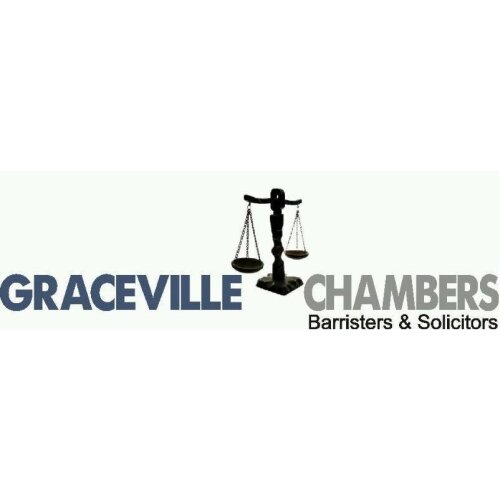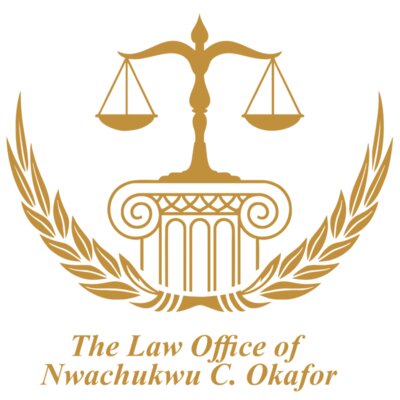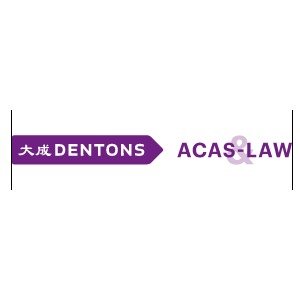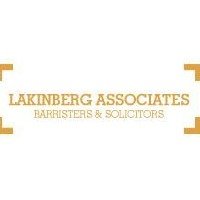Best Tax Increment Financing Lawyers in Lagos
Share your needs with us, get contacted by law firms.
Free. Takes 2 min.
List of the best lawyers in Lagos, Nigeria
Legal guides written by Adeola Oyinlade & Co:
- Procedure and Requirements for Work Permit and Visas in Nigeria
- The Step-By-Step Procedure of How to Apply for Microfinance Bank License Online in Nigeria
- How to Ensure the Smooth Recognition and Enforcement of Foreign Judgments in Nigeria
About Tax Increment Financing Law in Lagos, Nigeria
Tax Increment Financing (TIF) is a public financing method used for subsidizing redevelopment, infrastructure, and other community-improvement projects. While it is commonly employed in various global jurisdictions, its implementation in Lagos, Nigeria is evolving as local governments seek innovative ways to foster development in underdeveloped areas. TIF typically involves capturing the future tax benefits generated by the increased property value in a designated area to pay for the initial improvements that spurred the growth. In Lagos, TIF is used as a catalyst for urban renewal, addressing infrastructural deficits, and stimulating private sector investment.
Why You May Need a Lawyer
Understanding and navigating TIF can be complex, requiring specialized legal expertise. Common situations where legal assistance may be necessary include:
- Project Development: Developers often require legal guidance to understand the implications of TIF agreements on their projects.
- Government Procedures: Navigating the regulatory frameworks and government procedures involved in securing TIF can be challenging without legal assistance.
- Contract Analysis: Reviewing and negotiating the terms of agreements with local governments necessitates legal expertise.
- Dispute Resolution: Legal disputes may arise concerning property tax assessments or the sufficiency of improvements, requiring legal intervention.
Local Laws Overview
Tax Increment Financing in Lagos is governed by a combination of federal regulations and state-specific laws that aim to support urban development. Key aspects of these laws include:
- TIF District Designation: Identifying specific geographical areas that qualify for TIF based on criteria such as infrastructure needs and potential for economic growth.
- Incremental Tax Collection: Mechanisms for collecting increased property taxes over a specified base year in the TIF district.
- Use of Funds: Legal requirements on how TIF funds can be allocated, typically restricted to public infrastructure projects that boost development.
- Stakeholder Engagement: Mandates for involving community and private stakeholders in the planning and implementation phases.
Frequently Asked Questions
What is Tax Increment Financing?
Tax Increment Financing is a funding method used to subsidize redevelopment, infrastructure, and other projects by utilizing future tax revenues generated from increased property values in a designated area.
Is TIF used in all areas of Lagos?
No, TIF is generally used in designated districts where developmental needs have been identified, and there is potential for economic growth through public investment.
How does TIF benefit property owners?
Property owners in a TIF district can benefit from increased infrastructure investment, leading to enhanced property values and improved community amenities.
Who oversees TIF projects in Lagos?
TIF projects are typically overseen by local government authorities in Lagos, such as the Ministry of Economic Planning and Budget, along with relevant urban development agencies.
Can businesses apply for TIF directly?
Businesses usually do not apply for TIF directly. Instead, developers work with municipalities to propose projects that may qualify for TIF support.
What risks are associated with TIF?
Risks of TIF include potential disputes over property tax assessments, misuse of funds, and the possibility that anticipated growth does not materialize, leaving financial gaps.
How long do TIF districts typically last?
The duration of TIF districts varies but is often set for a term of 15-30 years, depending on the scope and objectives of the redevelopment project.
Can TIF be used for residential projects?
Yes, TIF can be used for residential projects, particularly those that include affordable housing components or that serve to revitalize neglected areas.
What is the role of a lawyer in TIF agreements?
Lawyers assist in negotiating agreements, ensuring compliance with local regulations, and representing stakeholders in any legal disputes that may arise during the TIF process.
Is there transparency in TIF funding allocation?
There are legal requirements for transparency in TIF funding allocation, including public hearings and stakeholder consultations to ensure accountability in the use of funds.
Additional Resources
For further assistance in understanding Tax Increment Financing in Lagos, consider contacting the following:
- Lagos State Ministry of Economic Planning and Budget: Provides information on policies and strategic objectives supporting economic development.
- Lagos Urban Redevelopment Authority: Offers guidance on urban renewal projects and development plans.
- Nigerian Bar Association: A resource for finding qualified lawyers specializing in property and urban development law.
Next Steps
If you require legal assistance with Tax Increment Financing in Lagos, consider the following steps:
- Research: Educate yourself on TIF and familiarize yourself with local regulations and public financing methods.
- Consultation: Arrange consultations with legal professionals who specialize in urban development and property law.
- Engagement: Engage with local authorities to understand the specific requirements and benefits of potential TIF districts.
- Legal Representation: Secure legal representation to guide you through the process, from negotiation to project implementation.
By taking these steps, you can effectively navigate the complexities of TIF and ensure informed decisions in your development endeavors.
Lawzana helps you find the best lawyers and law firms in Lagos through a curated and pre-screened list of qualified legal professionals. Our platform offers rankings and detailed profiles of attorneys and law firms, allowing you to compare based on practice areas, including Tax Increment Financing, experience, and client feedback.
Each profile includes a description of the firm's areas of practice, client reviews, team members and partners, year of establishment, spoken languages, office locations, contact information, social media presence, and any published articles or resources. Most firms on our platform speak English and are experienced in both local and international legal matters.
Get a quote from top-rated law firms in Lagos, Nigeria — quickly, securely, and without unnecessary hassle.
Disclaimer:
The information provided on this page is for general informational purposes only and does not constitute legal advice. While we strive to ensure the accuracy and relevance of the content, legal information may change over time, and interpretations of the law can vary. You should always consult with a qualified legal professional for advice specific to your situation.
We disclaim all liability for actions taken or not taken based on the content of this page. If you believe any information is incorrect or outdated, please contact us, and we will review and update it where appropriate.

















